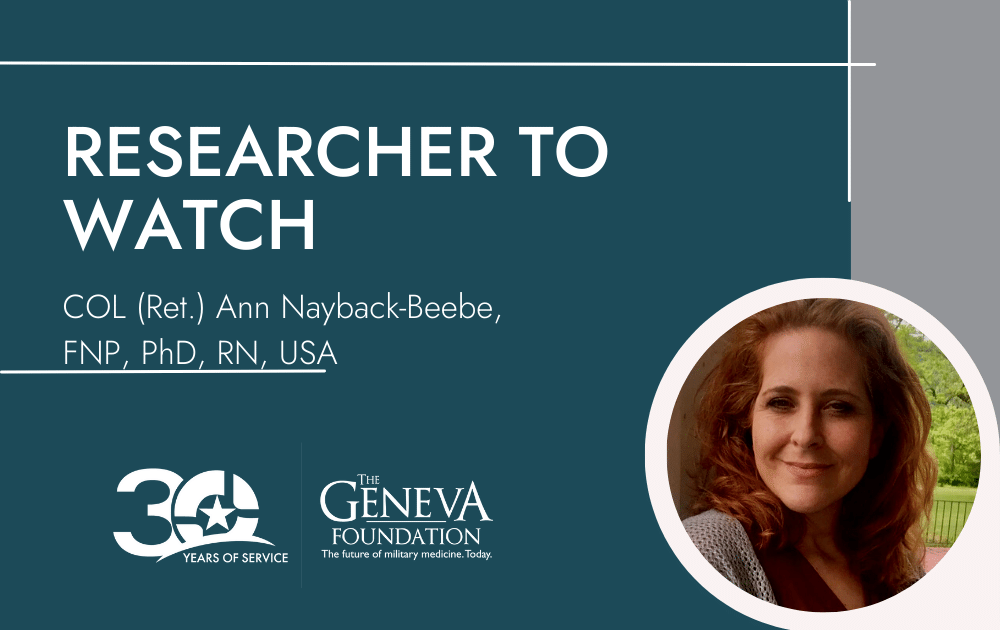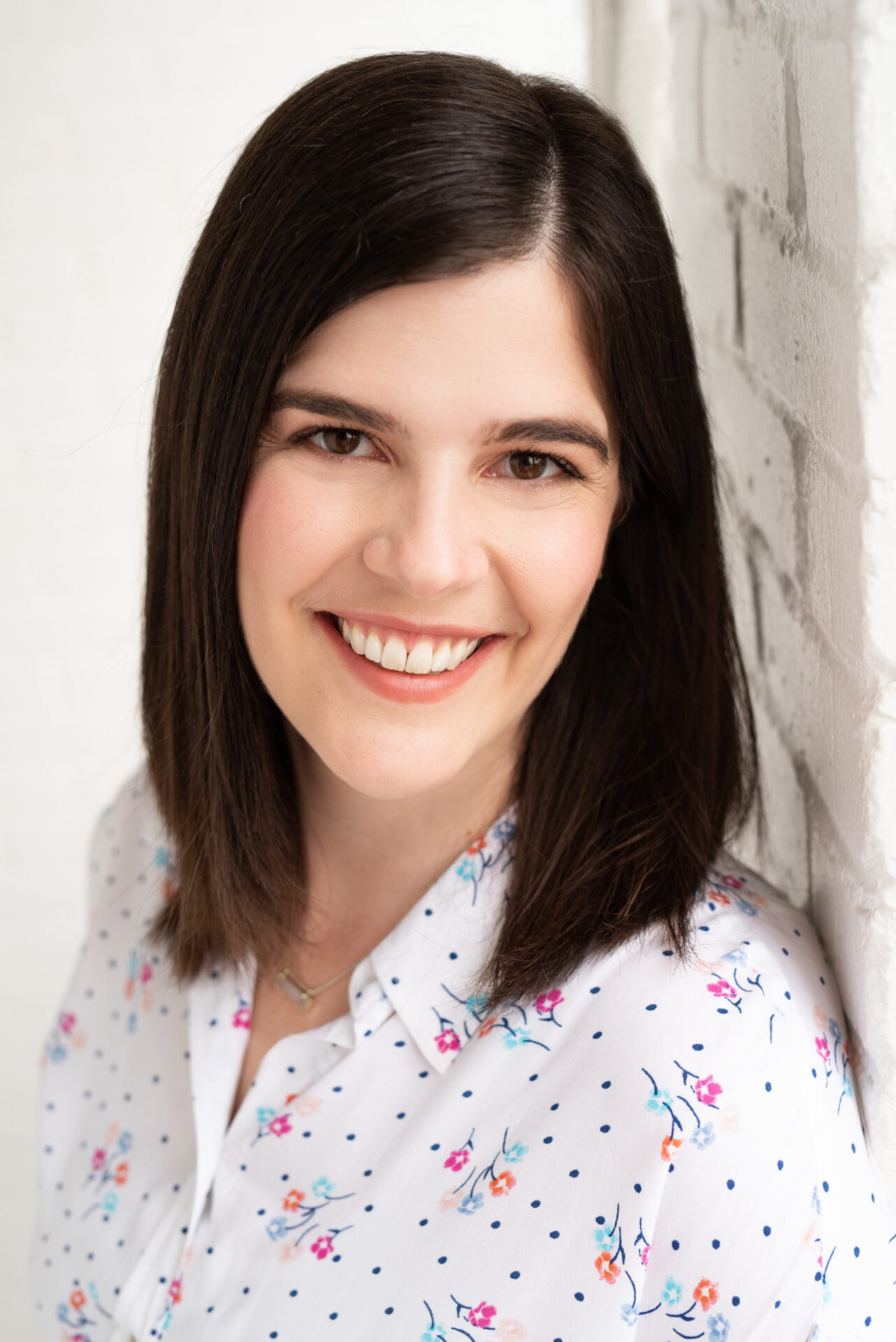15 March 2023
Using Audiovisual Simulation to Improve Sleep Health for Military Healthcare Providers
Researcher to Watch: COL (Ret.) Ann Nayback-Beebe, FNP, PhD, RN, USA
In the early days of the COVID-19 pandemic, health care workers were deemed essential, and have risked their own lives to take care of the infected ever since. Health care workers are particularly vulnerable to poorer mental and physical health because of their risk of exposure. They are also overworked and mentally exhausted from high pressure end-of-life decisions.
Because of these stressors, health care workers have reported a greater prevalence of depression, anxiety, post-traumatic stress, and insomnia symptoms. Even more so, military health care workers have the compounded stress of their military service on top of treating COVID-19 patients which increases their risk for sleep disturbances like insomnia.
COL (Ret.) Ann Nayback-Beebe, FNP, PhD, RN, USA is a Geneva principal investigator and employee who has devoted her 27-year military career as a nurse, nurse practitioner, and nurse scientist to treat and research acute and chronic pain, sleep disturbances and poor mental and physical health outcomes. Her work is also focused on complementary and integrative medicine modalities.
Dr. Nayback-Beebe’s current Geneva-managed research study is titled “A Randomized Controlled Pilot Study Examining Audiovisual Stimulation to Improve Sleep, Pain, and Well-Being in Military Healthcare Providers During the COVID-19 Pandemic”. She is studying audiovisual stimulation (AVS), an integrative modality that guides the brain into various states of alpha and theta brainwave activity, that can produce greater relaxation and improved sleep. The purpose of this pilot study is to test the efficacy of an AVS program for the promotion of sleep and reduction of fatigue risk in military health care workers with chronic pain, explore its effect on secondary outcomes, and examine overall study feasibility.
Dr. Nayback-Beebe has been a Geneva researcher for 10 years. Geneva helped facilitate the submission of this sleep study at Brooke Army Medical Center, and it was once funded, Geneva has provided research services including executing agreements, hiring and managing a dedicated program manager, and managing procurement needs.
“Because of the stressors inherent to military service, military nurses and other direct-care military health care workers are at a higher risk than their civilian peers of experiencing insomnia, chronic pain, depression, anxiety, and post-traumatic stress over the course of their careers, not only while delivering care to COVID-19 patients in fixed medical treatment facilities, but also while providing care to wounded, ill, and injured patients in combat and humanitarian aid deployments downrange,” says Dr. Nayback-Beebe. “The proposed study will examine the preliminary effectiveness of AVS in promoting sleep and determine the effect, if any, it has on secondary mental and physical health outcomes like mental health, fatigue, and chronic pain.”
Healthy sleep is one of the three pillars of the Performance Triad instituted by prior Army Surgeon General, MG Patricia Horoho. This idea focuses on maximizing nutrition, sleep, and physical activity for the optimal health and readiness on all military service members.
“If proven successful, future large-scale studies examining the use of AVS in military service members with frequent sleep interruptions could help promote better sleep and resilience and mitigate the effect of chronic stress and fatigue experienced during periods of high operational tempo,” explains Dr. Nayback-Beebe.
This award is funded by the TriService Nursing Research Program (TSNRP) under award number 11166-N22-A03.
Disclaimer: The views expressed do not reflect the official policy of the Army, Air Force, the Department of Defense, or the U.S. Government.

“Because of the stressors inherent to military service, military nurses and other direct-care military health care workers are at a higher risk than their civilian peers of experiencing insomnia, chronic pain, depression, anxiety, and post-traumatic stress over the course of their careers."
Dr. Ann Nayback-Beebe
HIGHLIGHTS
- Health care workers are particularly vulnerable to poorer mental and physical health because of their risk of exposure to COVID-19.
- Health care workers have reported a greater prevalence of depression, anxiety, post-traumatic stress, and insomnia symptoms.
- Dr. Nayback-Beebe is studying audiovisual stimulation (AVS), an integrative modality that guides the brain into various states of alpha and theta brainwave activity, that can produce greater relaxation and improved sleep.


